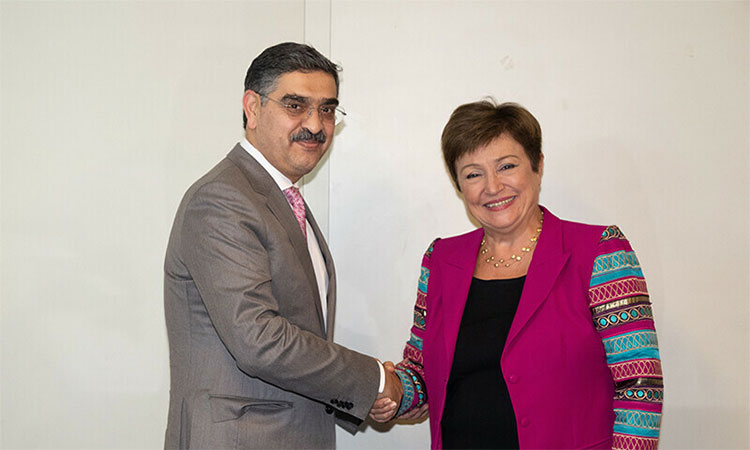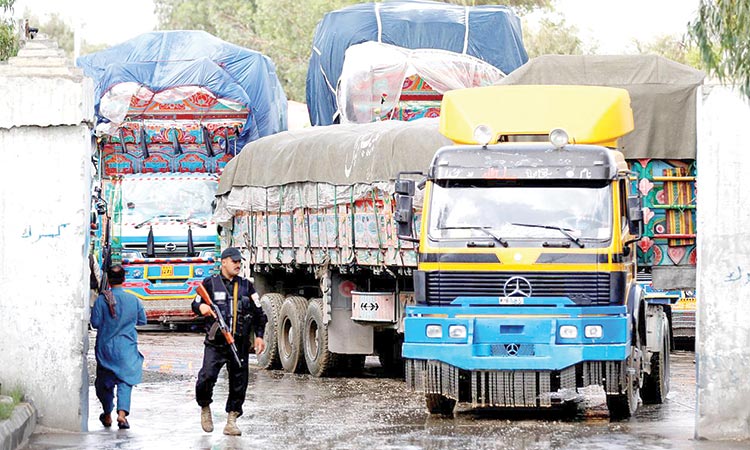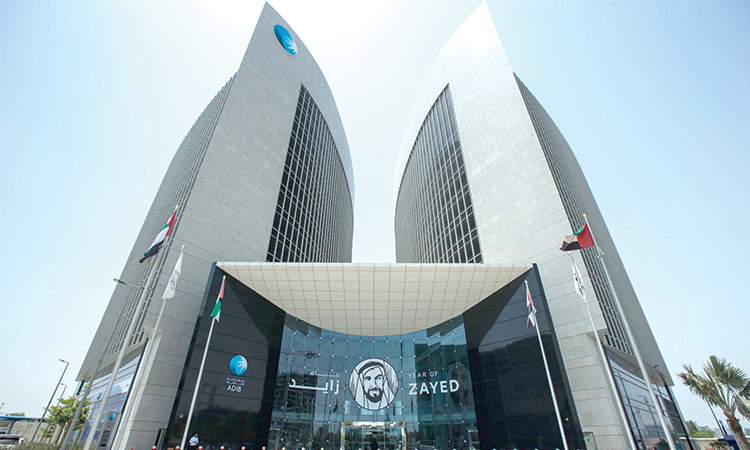Traders observe nationwide strike against heavy taxes

A motorcyclist rides through a market in Peshawar on Saturday. Associated Press
There was shutter-down in cities like Karachi, Lahore, Quetta, Islamabad, Rawalpindi, Faisalabad, Gujranwala, Bannu, Swabi, Hyderabad and several others.
The protest followed failure of talks between the traders and Federal Board of Revenue (FBR) officials.
Even Prime Minister Imran Khan held a round of dialogue with top businessmen bodies in Karachi two days back, but to no avail.
The traders demand that the government should introduce fixed tax for them and do away with certain conditions.
All the major shopping centres and markets in Karachi and Lahore were shut down.
No such successful strike was observed in Pakistan in recent years.
In certain places, the traders were divided into two groups with one of them shunning the strike.
However, those opposing the protest did not succeed much in several cities. This mostly happened in Punjab.
The traders’ representatives announced that they would give another call for strike if their demands were not met.
FBR Chairman has declared that the demands can’t be accepted as the government is keen to document the economy.
He said not a single new tax has been imposed in the fresh federal budget.
Reports said that in Karachi, ninety per cent of the shops and markets were closed due to the protest.
In Karachi, the country’s main commercial city, around 80% of markets dealing in bulk goods were closed, said Atiq Mir, president of the All Karachi Traders Alliance, which represents hundreds of markets in the city.
“Government policies have created mistrust in trade and industry,” said Mir, who added that traders were already struggling with corrupt tax officials demanding bribes.
Though not all business associations joined the strike but the move underlines the pressure facing Imran’s government, which came to power last year promising millions of new jobs and welfare measures to help the poor.
Instead, like so many of its predecessors, it is having to impose tough austerity measures having been forced to turn to the IMF for Pakistan’s 13th bailout since the late 1980s.
In Karachi, calm prevailed around the main electronics market in the old city that would normally be bustling on a Saturday with traders selling everything from mobile phones to televisions, refrigerators and air conditioners.
A popular textiles market on Tariq Road in another part of the city was also closed as traders, already struggling to attract customers hit by a sliding rupee and inflation running at around 9%, shut up shop for the day.
Under the IMF bailout, signed this month, Pakistan is under heavy pressure to boost its tax revenues to plug a fiscal deficit which has ballooned to around 7% of its gross domestic product, as well as avert a looming balance of payments crisis.
The South Asian country has long suffered from a weak tax base, with only about 1% of its 208 million population filing income tax returns and key industrial sectors dominated by powerful lobbies that pay little or no tax.
Among the measures which have roused the anger of traders is a new rule that would require customers buying items worth Rs50,000 ($315) or over to produce identity documents, a move intended to help authorities to track tax evaders.
“The new condition of the national identity card on purchases of Rs50,000 or more has created harassment among the people,” Mir said.
Under the measures agreed with the IMF, the government has also agreed to close loopholes and preferential rates in sales tax on sugar, steel, edible oils and medium and large retailers, hitting many businesses.
“We want zero tax on small retailers. Sales tax should be limited to the manufacturing sector,” Mir said.
Opposition Senator Mushahid Ullah Khan said the government’s “ill-conceived” financial policies have led to price hikes.
Tariq Butt / Agencies







